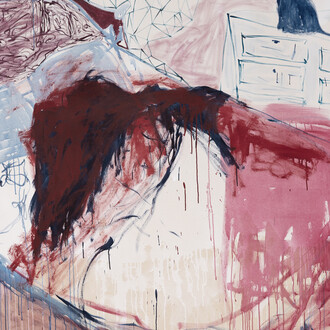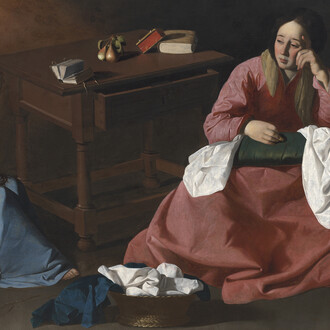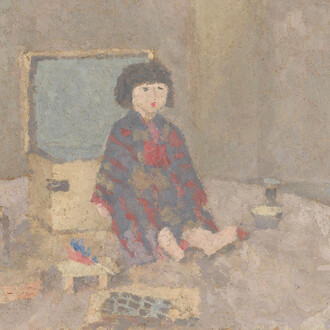The Photographers’ Gallery presents an exhibition of photographs from Deeds Not Words, a multi-layered social documentary project by Mark Neville.
Deeds Not Words was shot over eighteen months and printed in 2011 as a book of photographs, scientific reports and testimonials. The project chronicles the people of Corby, Northamptonshire and the environmental issues made public by the court case known as the ‘Corby 16’. The book, which is not available commercially, was put to use as an advocacy tool and sent directly to the 433 local council authorities in the UK and to environmental agencies internationally. Neville's aim was to examine issues around the handling of toxic waste and the reuse of contaminated land. This exhibition will be the first public display of these images, exploring Neville’s challenging approach to documentary photography while marking another stage in his campaign for positive change.
In 1998 Corby Borough Council was prosecuted for negligent management of the local steelworks sites. The case was brought to court by the families of sixteen children born between 1985 - 98 with limb defects. These were said to have been the result of harmful substances generated during the council’s reclamation of those sites. Following an eleven-year long legal battle which concluded in a High Court of Justice trial, the case has now been decided in favour of the families. However many of the groundbreaking legal, medical and scientific findings remain unpublished.
This exhibition will present a selection of images and findings from the project: thirty-two colour and black and white photographs depicting everyday scenes and activities, including portraits of two of the young claimants. Seen in the context of the case, Neville’s images—which vary from high theatre to straight documentary—examine the different aspects of life in Corby, a town marked by a strong Scottish identity, emerging from the decline of its once-famous steelworks.
The exhibitionwill also include a short film featuring interviews with some of those involved in the case, various environmentalists as well as the artist. Copies of the book will also be on display. Key images and information from the show will be reproduced on a limited number of double-sided posters and given away free to visitors.
Deeds Not Words, the title for both the book and the show, is taken from Corby Borough Council’s motto.
Mark Neville said: The whole character of the town of Corby and its people is still defined by the steel industry which formed it. It was important to me to produce a set of photographs which investigated that character; which did not ignore the visual nature of the town, its Scottish roots, or the history of the mills; or separate these from the court case. Social documentary photography sometimes deals passively with its subject matter. What this exhibition is ambitiously trying to achieve is to reach out to environmental and scientific bodies, raise awareness about the issues, and perhaps even bring about a change in policy. In doing so it also attempts to explore the possible functions of documentary photography, and its relationship to a wider audience.
Brett Rogers, Director, The Photographers’ Gallery said: Since critics in the 70s made the case that photographs of victims are exploitative, deceitful – even pornographic – a generation of photographers has chosen either to avoid addressing these difficult subjects or find dramatic new ways of approaching them. Mark Neville confronts the dialectic which lies at the heart of representing individual suffering, challenging us to reconsider the photo’s ability to generate protest and effect political change. Deeds not Words crystallises Neville’s commitment to a reformulated idea of documentary – one which fundamentally addresses key human rights issues for our time.
Clare Matterson, Director of Medical Humanities and Engagement at the Wellcome Trust said: We are delighted to be extending our support of Mark’s original documentary work to this new exhibition. Mark’s work portrays everyday life in the Corby community in an arresting way which we hope will stimulate debate around the issues raised by the case, including environmental toxicology and birth defect clusters.



















